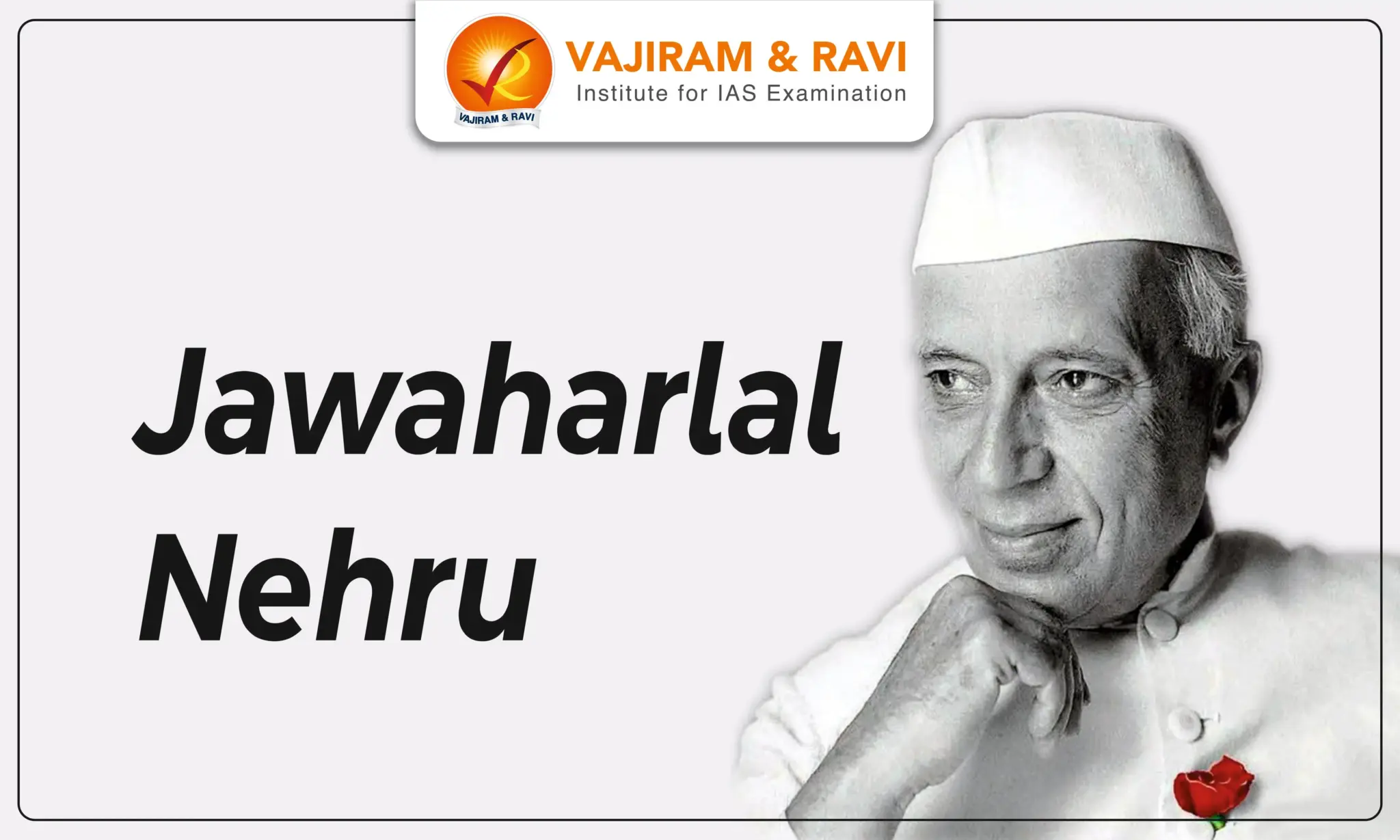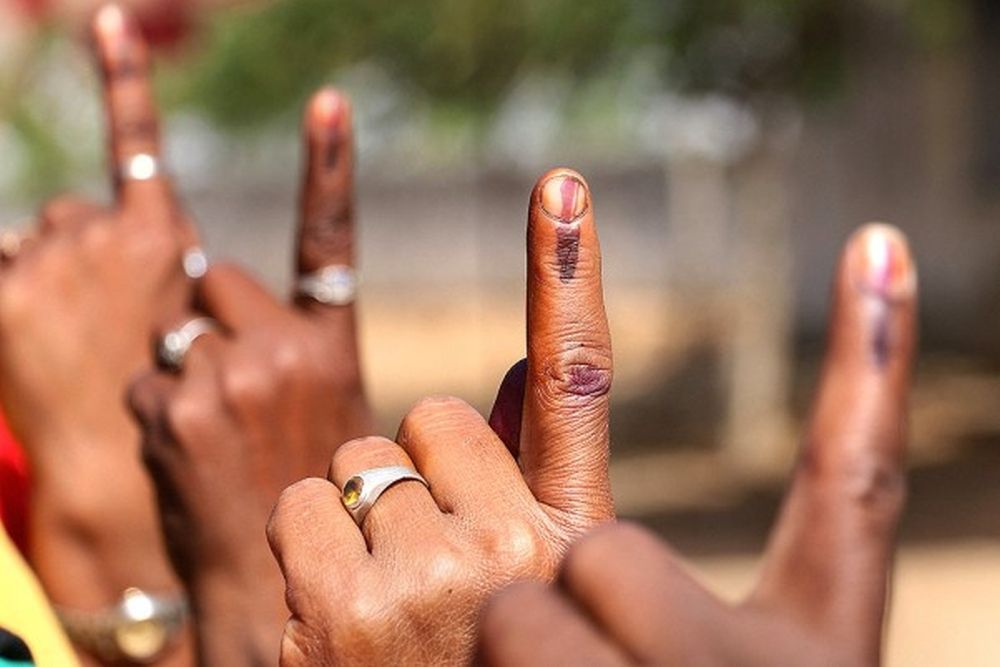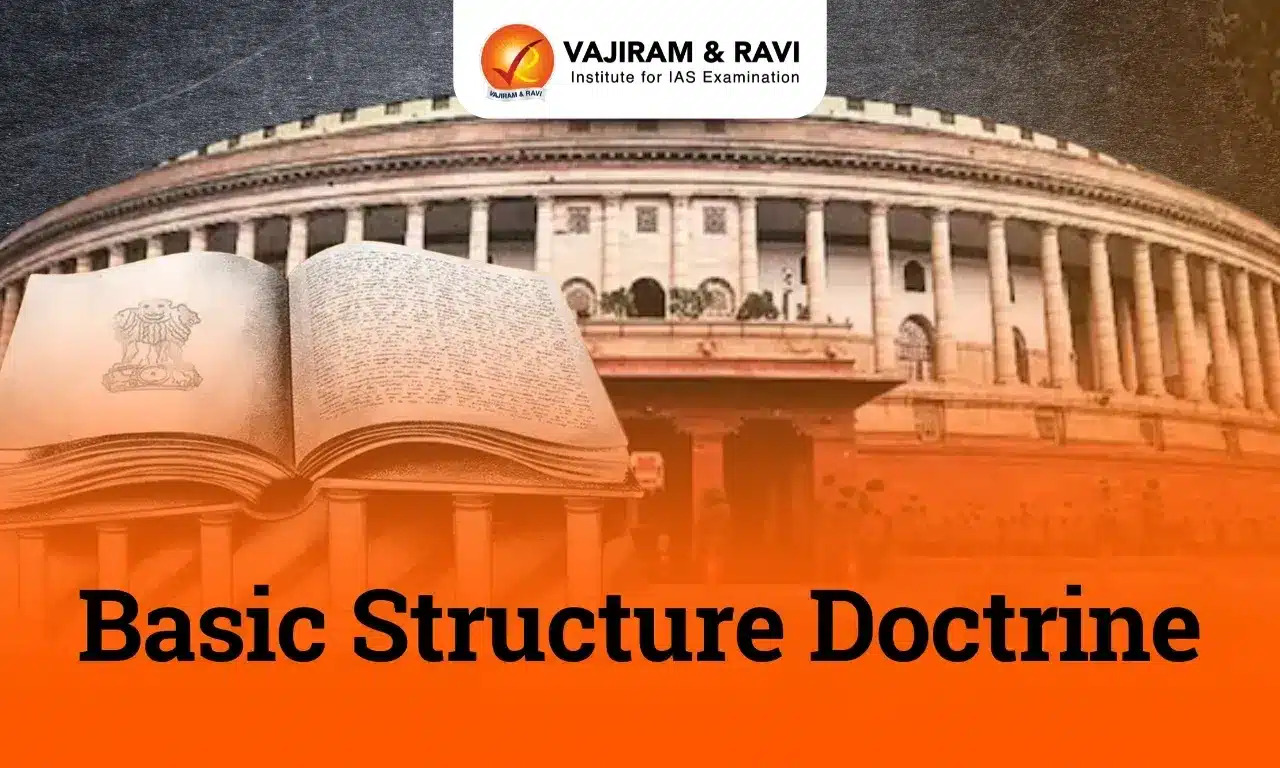Jawaharlal Nehru, a central figure in India’s freedom struggle and its first Prime Minister, played a crucial role in shaping the nation’s democratic, socialist, and secular framework. Nehru’s leadership during pivotal moments of the independence movement, including the Non-Cooperation and Civil Disobedience Movements, cemented his place as a leading nationalist.
As Prime Minister from 1947 to 1964, Nehru focused on building India’s institutions, promoting industrialization, and establishing a non-aligned foreign policy. His vision for a modern, united, and secular India remains a cornerstone of the country’s development and governance.
Jawaharlal Nehru
Jawaharlal Nehru was born in Allahabad on November 14, 1889, into the affluent and influential Kashmiri Pandit family. His father, Motilal Nehru, was a wealthy barrister and twice served as President of the Indian National Congress. Nehru grew up in privileged surroundings, receiving education at home with private tutors.
- In 1905, Nehru went to Harrow School in England, followed by Trinity College, Cambridge, where he graduated in natural sciences.
- He later studied law at the Inner Temple in London and was called to the bar in 1912.
- After returning to India, Nehru briefly practised law at the Allahabad High Court but soon turned to nationalist politics, inspired by the growing struggle for India’s freedom.
Jawaharlal Nehru Indian Freedom Movement
Jawaharlal Nehru, a visionary leader of the Indian independence movement, played a significant role in shaping the fight against British colonialism. He worked closely with other nationalist leaders and was instrumental in several key movements that mobilized the masses.
- Non-Cooperation Movement (1920-1922): During Gandhi’s Non-Cooperation Movement in the 1920s, Nehru played a key role in organizing political activities in the United Provinces as the provincial Congress secretary. His active involvement led to his arrest on 6 December 1921, on charges of opposing the British government.
- Salt March (1930): Initially hesitant about Gandhi’s Salt March plan, Nehru soon realized the immense symbolic power of the salt tax protest. After leading a large procession and making contraband salt, he was arrested and sentenced to six months in jail for breaking the salt law.
- Individual Satyagraha (1940-1941): During the Individual Satyagraha launched by Gandhi in 1940 to affirm the right to free speech against British rule, Jawaharlal Nehru was chosen as the second individual Satyagrahi, following Vinoba Bhave.
- Quit India Movement (1942): In 1942, despite initial reluctance due to the ongoing war, Nehru supported Gandhi’s call for British withdrawal. After moving the historic ‘Quit India’ resolution on 7th August 1942 at the AICC session in Bombay, Nehru, along with the entire Congress leadership, was arrested.
- Role in INA Trials (1945-1946): Jawaharlal Nehru, along with other prominent leaders like Bhulabhai Desai and Asaf Ali, took responsibility for defending the INA soldiers during their trials. A special committee was formed by the Congress Working Committee to represent the INA soldiers, with Nehru playing a key role in leading their defence.
Jawaharlal Nehru Congress President
Jawaharlal Nehru’s leadership as Congress President marked a transformative phase in India’s freedom struggle. He played a crucial role in shaping the political ideology of the Congress, promoting more radical approaches to attain full independence and advocating socialist principles to address India’s socio-economic challenges.
- Nehru first became Congress President in 1929, Lahore Session. Under his leadership, the Congress passed the historic Purna Swaraj resolution, which called for complete independence from British rule.
- In 1936, during the Lucknow session of the Indian National Congress, Jawaharlal Nehru urged Congressmen to embrace socialism.
- In 1937, Nehru presided over the Faizpur session, which was the first INC session held in a rural area.
Jawaharlal Nehru Interim Government
In 1946, Nehru and other Congress leaders were released from jail ahead of the arrival of the Cabinet Mission, which came to India to discuss the transfer of power. The subsequent plan led to provincial assembly elections, where Congress secured a majority. The elected assembly members then chose representatives for the Constituent Assembly. With Congress dominating the assembly, Nehru was appointed the Prime Minister of the Interim Government, overseeing the transition toward independence.
Jawaharlal Nehru First Prime Minister of India
Jawaharlal Nehru became India’s first Prime Minister in 1947, a position he held for 16 years. Initially serving as the interim prime minister during the final stages of British rule, Nehru continued as the prime minister of the Dominion of India after independence in 1947. Following the adoption of the Indian Constitution in 1950, he transitioned to being the prime minister of the Republic of India. His leadership during these formative years shaped the nation’s political, economic, and social landscape, focusing on industrialization, social reforms, and establishing a secular democracy.
Jawaharlal Nehru’s Vision and Governing Policies
As the first Prime Minister of independent India, Nehru’s vision was shaped by a blend of socialism, secularism, and modern industrial development. His governance sought to establish a self-reliant nation through policies that emphasized economic growth, social justice, and education.
- Economic Policies: Nehru advocated for a mixed economy where the government-controlled public sector coexisted with the private sector. He focused on import substitution industrialization, prioritizing the establishment of heavy industries like steel, iron, coal, and power as the backbone of India’s modernization and economic development.
- Agriculture Policies: Land reforms during Nehru’s tenure aimed to abolish large landholdings and improve agrarian productivity. Efforts were made to redistribute land more equitably among the landless.
- Education Policies: Nehru was a fervent supporter of education, seeing it as essential to the advancement of India. The All India Institute of Medical Sciences (AIIMS), Indian Institutes of Technology (IITs), Indian Institutes of Management (IIMs), and National Institutes of Technology (NITs) are just a few of the institutions his government established.
Jawaharlal Nehru Foreign Policy:
Nehru’s foreign policy was marked by his commitment to non-alignment during the Cold War. He aimed to position India as a leader among newly independent nations, promoting peace and cooperation while maintaining neutrality between the two superpowers.
- Defence and Nuclear Policy: Though opposed to war, Nehru did not hesitate to use military force when required. He led military operations in Kashmir during the conflict with Pakistan and oversaw the annexation of Hyderabad in 1948 and Goa in 1961.
Jawaharlal Nehru Literature
Jawaharlal Nehru was not only a prominent political figure but also a prolific writer. One of his most celebrated works, The Discovery of India, is a profound exploration of India’s rich heritage, culture, and history, penned during his imprisonment in 1942-1946. Additionally, his autobiography, An Autobiography (also known as Toward Freedom) provides a personal account of his life, political experiences, and the struggle for independence. His other key writings include Glimpses of World History and Letters from a Father to His Daughter.
Jawaharlal Nehru Awards and Honours
Jawaharlal Nehru received numerous accolades throughout his life. In 1948, he was awarded an honorary doctorate by the University of Mysore, followed by similar honours from the University of Madras, Columbia University, and Keio University. He also received two honorary degrees from Hamburg University. In 1955, he was honoured with the Bharat Ratna, India’s highest civilian award. In 1970, he was awarded the World Peace Council Prize posthumously.
Jawaharlal Nehru Death and Legacy
Jawaharlal Nehru passed away on May 27, 1964, leaving a profound legacy as the architect of modern India. His vision for a secular and democratic nation laid the foundation for India’s development and governance. Nehru’s birthday, November 14, is celebrated as Children’s Day in India, honouring his love for children and education. His contributions to science, technology, and social justice continue to inspire generations, solidifying his role as a pivotal figure in shaping the country’s identity and democratic values.
Jawaharlal Nehru UPSC PYQs
- Q) The Ninth Schedule was introduced in the Constitution of India during the prime membership of (UPSC Prelims 2019)
(a) Jawaharlal Nehru (b) Lal Bahadur Shastri
(c) Indira Gandhi (d) Morarji Desai
Ans: (a)
Last updated on April, 2025
→ UPSC Notification 2025 was released on 22nd January 2025.
→ The UPSC Vacancy 2025 were released 1129, out of which 979 were for UPSC CSE and remaining 150 are for UPSC IFoS.
→ UPSC Admit Card 2025 is expected to release in first week of May for CSE Prelims Exam 2025.
→ The UPSC Prelims 2025 is scheduled to be conducted on 25th May 2025 and UPSC Mains 2025 will be conducted on 22nd August 2025.
→ Apply once through it and aspirants can apply for various government exams conducted by UPSC.
→ The UPSC Selection Process is of 3 stages-Prelims, Mains and Interview.
→ UPSC Result 2024 is released with latest UPSC Marksheet 2024. Check Now!
→ UPSC Toppers List 2024 is released now. Shakti Dubey is UPSC AIR 1 2024 Topper.
→ Also check Best IAS Coaching in Delhi
Jawaharlal Nehru FAQs
Q1. How long was Jawaharlal Nehru prime minister?+
Q2. What was Jawaharlal Nehru famous for?+
Q3. Why is Nehru called Pandit?+
Q4. What was Nehru's vision for India?+
Q5. What was Jawaharlal Nehru's famous speech?+
Tags: jawaharlal nehru quest
















